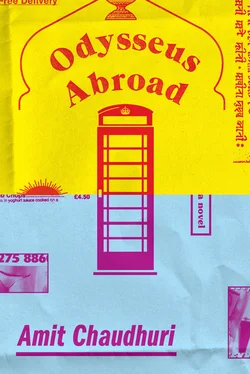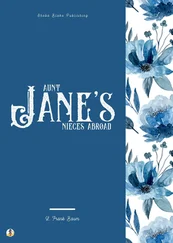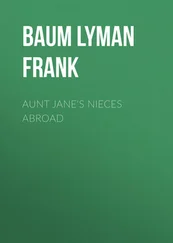—
Circling back to Warren Street, so he could pay Walia the rent, Ananda crossed at the traffic lights. He still wasn’t out of Bloomsbury. Discovering the college was in the heart of Bloomsbury had once compensated an iota (no more) for his misery in London, and for the fact that he wasn’t in Oxford or Cambridge. The entrance exams he’d have had to take for Oxbridge — given his aversion to being quizzed and assessed — decided it for him; and the fact that he’d need to write a Latin paper for Cambridge had made up his mind. But he might still have wavered if his uncle hadn’t casually said he’d put him up. Staying with him seemed like a feasible idea at the time. Another reason to be in London. How the two would have fitted into the bedsit was never put to the test. Part of the lore about his uncle had to do with how he’d taken in Bontu, an older cousin of Ananda’s, when he was a poor research student at the School of Tropical Medicine. Many were Bontuda’s stories about his uncle’s and his odd-couple existence — till Bontu got his doctorate and escaped. Maybe some kind of wisdom made his uncle retract his original offer to Ananda. By then Ananda was already aimed for London. He didn’t change direction. When he realised at last that he was almost daily in Bloomsbury, he couldn’t find it. Whenever he came to college, he thought he’d encounter it without having to actively search for it. The sixties stone building of the Bloomsbury Cinema and the bed and breakfasts with black doors on the outer reaches of Gower Street didn’t add up to the place.
—
Nestor Davidson’s rebuttal — his misreading — of his poems was sinking in. He pondered over the remark, “I’m sure you’re not as bloodthirsty as this makes you appear,” as he walked towards Charlotte Street, feeling faintly hungry. He was unassailable. The words didn’t hurt; they weren’t meant to. They were a detail in a small chapter in a larger story whose shape still wasn’t clear; but Ananda sensed that glory, in the end, would be his. Walia: he’d promised he’d give him the cheque this afternoon. The Natwest chequebook was curled double in his pocket, less a financial accessory than an extension of himself.
—
Down the stretch of Charlotte Street he went — he liked the route, because there was no one else on it, and he felt like he possessed the road — till he came to Grafton Way and turned right. Here was Walia’s kingdom. He had two restaurants here. The one on the corner of Grafton Way and Whitfield Street was fancifully called Diwan-i-Khas, the Regal Court, as in the Red Fort, from where the Mughals centuries ago had reigned. In fact, the environs gave off echoes of Mughal imperial history, and, on Tottenham Court Road, a minute away, was the Red Fort itself, Lal Qila, a better-quality restaurant than Walia’s: its tandoori quail was fabulous, though you had to take care to extricate the deceptively thin bones in the bird’s flesh in case you choked on one. On Whitfield Street was (named after another section of the interminable Red Fort) a second restaurant, Diwan-i-Aam, the Commoners’ Court. Ananda had presumed that this was a rejoinder by a rival to Walia, until he found that the dashing Punjabi owned both restaurants. There was a joke among tenants in the buildings Walia owned on Warren Street that, given the steady advance he was making in capturing properties, he’d become “Lord Walia” before long. The little stretch of Whitfield Street between Grafton Way and Warren Street was not, however, salubrious. On one side lay a vacant lot behind which was a shattered building occupied illegally by people from the Caribbean — whose proximity scandalised the wealthier Indian expatriates in Walia’s flats. On the opposite side was a neutral Bangladeshi grocer’s, and Diwan-i-Aam (through the panes you could see customers submitting to men dressed like Peshawari soldiers), which marginally enlivened the stretch in the evening. But best was the Jamaican music shop adjoining the vacant lot, on your left if you were directly facing Diwan-i-Khas on Grafton Way. Without explanation or warning, it would sometimes vibrate with music of simple, uncomplicated joy, comprising two or three chords and an agile melody.
—
Walia was usually to be found in Diwan-i-Khas, the Regal Court; you rarely spotted him in Diwan-i-Aam. Entering, Ananda at once saw him at a table between the doorway and the bar. He was in his mid-fifties, with an air both youthful and authoritative. His sartorial sensibility had been shaped by the seventies. He wore a pale, silken shirt — its sheen achieved a kind of parity with his silver hair — and left the first two or three buttons unfastened, so that you were provided a glimpse of his largely hairless torso — with the exceptional strand of grey — and the curve where his mildly assertive paunch began. Close friends called him Manny: an affectionate contraction of Maninder. Despite his cheesiness, he stood out; he was handsome, in a Punjabi-aquiline way, his flared nostrils giving the impression of a man who had a temper and an instinct for flamboyance.
Ananda had never been a rent-payer before; Walia was his first landlord. He didn’t know how to take him. Though it was well disguised — maybe even subconscious — he couldn’t banish the feeling that Walia was a subordinate. An intellectual one. What was he but a small-time “Asian” businessman, despite his airs? A man who temporarily had the upper hand. What was “Asian” anyway — an equivocal category, neither British nor Indian, for people who had essentially nowhere to go? The whole notion of Walia’s properties became a bit of a joke then, something he was making up on the hoof. Maybe these prejudices — a set of defences, really, on Ananda’s part, against one who exercised power over him — somehow conveyed themselves to Walia, and explained his stiffness.
“Mr. Walia.”
He looked up from whatever was absorbing him in the ledger, smiled faintly.
“Ha — how are you?”
“Fine, thank you. Uh — I’ve got the rent.”
Not cash in hand. He dipped into the pocket for the chequebook. The rent was two hundred and fifty pounds — a hundred more than before, given the sequestering of the kitchen and the conversion of the second floor into Ananda’s studio flat. Ananda’s mother had had a showdown with Walia in Diwan-i-Khas about the rent and the neighbours. “You can’t charge us because other people behave terribly!” She’d flashed her big angry eyes. That usually worked. “You don’t know who you’re talking to,” she said. How could he? Could he have any conception — this restaurant owner — of their apartment overlooking the sea, or her husband’s exalted position? “You’re nothing,” he’d said, studying the ledger, not so much shying away from eye-contact as not troubling to look at her. “Nothing.” She was. Neither her dominance nor her husband’s extended to here. She could protect Ananda, but mainly with joking camaraderie. Later, she’d mimicked Walia—“You’re nothing, you’re nothing”—and they’d relished the remark. There was no change to the barely affordable rent.
—
The smell of fenugreek. A sudden hiss: someone had ordered the tandoori platter. There weren’t that many people: weekday lunches were a desultory affair. Diwan-i-Khas was largely uninfiltrated. He took out the cheque, doubled foetally on itself. Smoothed it on the table.
The Sylheti waiters tarried discreetly. Benevolent backup. Walia’s troops, but Ananda’s kin. From the ancestral land he’d never seen.
“Kemon asen?” said the handsome one with the thinning hair in an undertone. Ananda had never forgotten him. He had the steadfastly reassuring air he’d had when, two years ago, Ananda and his parents had entered Diwan-i-Khas for the first time; once his father and mother had divulged over the beginnings of tarka daal and pilau rice that they hailed from Sunamganj and Habiganj respectively — how it had startled this man! — the subject had turned to rentable property. The hostel had become intolerable; its drunkards and merrymakers — international students — were keeping Ananda from practising music. Someone said the hostel was rumoured to be a “pickup joint.” But Ananda hadn’t been able to take advantage of that aspect of the place either. In the course of their uninformed search for alternative accommodation, they’d slipped into Diwan-i-Khas. “Fo-laat?” the waiter had asked, unflappably resourceful, as he poured tap water from a jug. “You want fo-laat?” Ananda was delighted by the neologism. It was deliberate — meant to put them at ease, earn trust in a way that English or standard Bengali couldn’t. So it was when waiters were plying them with mango chutney. “Fikol?” they’d say solicitously, holding the bowl of mango pickle aloft, disorienting, then disarming, them. Yes, they’d have fikol, how could you demur to such a request, which admitted you to the deepest — maybe it was a slightly too deep — familiarity? “Fo-laat?” this man hovering now by the table had said two years ago, and pointed them in the direction of Warren Street. “Our malik Walia — he has lots of fo-laats, ask him.”
Читать дальше











